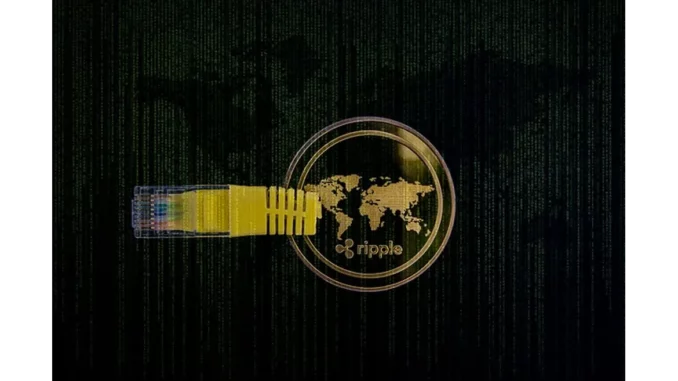
Summary
Decentralised AI Poised to Reshape Industries with Blockchain Synergy
The integration of artificial intelligence (AI) and blockchain technology is ushering in a transformative era of decentralised intelligence. This coupling is not merely a technological trend but a significant shift that promises to redefine the landscape of intelligent systems. By enhancing privacy, security, and democratising access, decentralised AI systems present a compelling alternative to traditional models.
Main Article
The current technological landscape is witnessing rapid advancements in both AI and blockchain, heralding a new paradigm in decentralised intelligence. Centralised AI models, often controlled by a handful of large corporations, have long been a source of concern due to their potential for data privacy breaches, security vulnerabilities, and inherent bias. The concentration of power among these entities restricts the widespread benefits of AI, thereby stifling innovation.
Decentralised AI seeks to address these challenges by distributing the power of AI through a transparent and equitable framework. By leveraging blockchain technology, decentralised AI enhances privacy and increases security, offering a robust alternative to centralised AI models. As Dr. Marcus Eldridge, a leading researcher in AI ethics, notes, “The integration of blockchain into AI systems is not just about technology; it’s about empowering individuals and communities by ensuring data sovereignty.”
Technological Foundations
The foundation of decentralised AI lies in the convergence of advanced technologies, notably blockchain and federated learning. Blockchain’s role is pivotal, providing immutable and transparent data storage that ensures the integrity and reliability of AI models. By maintaining data across a distributed ledger, blockchain mitigates risks related to data tampering or unauthorised access, making it a critical component for applications requiring high levels of security.
Federated learning complements this by enabling decentralised AI training across multiple devices or servers, preserving data privacy and allowing AI to learn from a broad array of data sources. This process ensures that AI models benefit from diverse perspectives, thereby reducing the bias often introduced by centralised training on limited datasets. “Federated learning’s ability to democratise AI development is a game-changer,” says Dr. Angela Patel, an AI technologist at the forefront of federated learning research.
Industry Applications
Decentralised AI is already making significant inroads into various industries. In healthcare, for instance, it allows the development of AI models trained on data from multiple hospitals without compromising patient privacy. This approach enhances patient care by enabling AI to analyse a comprehensive dataset in compliance with stringent data protection regulations.
In the financial sector, decentralised AI is instrumental in fraud detection and improving transaction accuracy. By real-time analysis of transaction data, AI can identify potential fraudulent activities, thereby bolstering trust within the financial ecosystem. Similarly, in supply chain management, the combination of blockchain and AI facilitates real-time visibility and optimises operations, reducing the risks of fraud and counterfeit goods.
Detailed Analysis
Decentralised AI is set to revolutionise industries by transforming how data is handled and processed. The growing concerns over data privacy and the tightening of regulations underscore the need for systems that keep data under user control. Decentralised AI offers this solution, minimising breach risks and ensuring compliance with emerging privacy laws.
The synergy between federated learning and blockchain is crucial for building resilient AI systems. As these technologies continue to evolve, they will likely extend beyond current applications, influencing sectors such as energy, telecommunications, and government services. In these fields, decentralised AI could optimise operations, enhance decision-making processes, and improve service delivery.
Moreover, the potential integration of decentralised AI with other emerging technologies, like 5G, Internet of Things (IoT), and quantum computing, could unlock unprecedented capabilities. This integration promises real-time decision-making in smart cities and advanced automation in various industries. However, challenges remain, particularly regarding scalability. Innovations in consensus mechanisms and federated learning will be essential to ensure that decentralised AI can scale effectively to meet future demands.
Further Development
The future of decentralised AI is poised to be expansive, with its potential applications expected to grow beyond healthcare and finance. As it continues to develop, stakeholders can anticipate its influence in optimising operations and enhancing service delivery in sectors such as energy and telecommunications.
Furthermore, as technological integration deepens, the possibilities of decentralised AI with 5G, IoT, and quantum computing will unfold, presenting new opportunities for innovation. The path forward will require addressing scalability challenges, with ongoing research and development into consensus mechanisms and federated learning playing a crucial role.
For readers interested in staying abreast of these developments, further coverage will explore how decentralised AI is transforming industries and what innovations are necessary to overcome current challenges. The unfolding story promises to offer insights into the future of AI technologies and their impact on global economic and political landscapes. Stay tuned for more in-depth analysis and updates on this pivotal shift in technology.

